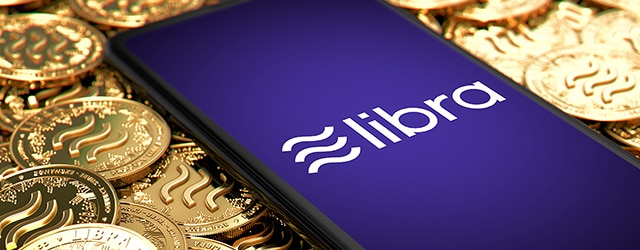Facing regulatory hurdles in the U.S. and China, Libra's best bet may be in Latin America.

Facebook’s new digital currency Libra will likely find its easiest use-and-growth case in Latin America due to the region’s high rate of unbanked citizens, the company’slarge customer base and relatively friendly cryptocurrency regulations.
“Latin America is the market where they have the greatest opportunity for growth,” said Sebastian Serrano, founder and CEO of regional cryptocurrency wallet Ripio. “There is a huge need for financial inclusion, a very big user base and familiarity with cryptocurrencies.”
Unlike the U.S (where Libra is facing big regulatory headwinds and a possible ban) or China (where cryptocurrencies are banned), Mexico, Argentina, Brazil, Chile and Venezuela allow Bitcoin and its ilk to be used for payment. This—coupled with 271 million users and a plethora of merchants that allow users to log in to their sites through their Facebook accounts—should help fuel Libra adoption.
“Latin America is going to be on of the easiest markets for Facebook to test Libra,” said Anouk Pinchetti, a digital currency consultant, adding that Facebook may choose a Latin American country as its first expansion market. “Western Union is viewed as too costly for remittances and there is great proximity to the U.S. and Silicon Valley.”
Latin American nations keen to attract additional capital and breadwinning remittances flows—especially Mexico and its Central American neighbors—will also likely have fewer objections to Libra, which is expected to launch in the middle of next year with a string of heavyweight partners including Paypal, Visa, Mastercard and Uber.
Safwan Zaheer—who recently started his own global payments consultancy after leading that practice at KPMG—agrees that Facebook may have an easier time fleshing out Libra in Latin America and other emerging markets.
“Presently, the chances of Libra succeeding are less than 50% in the developed world” amid regulatory and lingering privacy concerns following Facebook’s involvement in the Cambridge Analytical scandal.“But if Facebook launches Libra in Venezuela or Colombia or even Zambia [in Africa], with a small network of nodes [computers] doing transactions with Libra, that experience could be delivered and potentially see scale,” he explained.
Facebook has conceded it has an interest in Latin Americawhere migrants lose $25 billion annually by paying high remittance fees and where 50% of the population remains unbanked.
The company will likely team upwith retailers across the region allowing customers to swap cash for Libra, something that will be more challenging as Western Union, Moneygram and other cryptos such as Electroneum and Pundi X are vying for a chunk of the same market.Facebook recently met with Ripio and its peers to explore partnerships to provide users with on-ramps to buy Libra. Ripio, for example, could allow its users to exchange fiat currencies or pesos for Libra, as part of services that already allow people to buy Bitcoin and its main rivals Ethereum or Litecoin.
Libra might best gain mass adoption by allowing regular unbanked citizens to pay and receive money through their Calibra digital wallet.The company’svast user base in Latin America—where 120 million people browse Facebook in Brazil alone (the largest market after India and the U.S.)—gives Libra a significant advantagevis-à-vis competitors in both the cryptocurrency and digital payments spaces.



